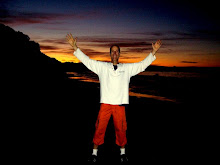All crimes, all hatreds, all wars can be reduced to unhappiness.
A.S. Neill 1883 – 1973, founder of Summerhill School.
Our two daughters have been raised in America, Canada, New Zealand and the Netherlands. We have touched on Montessori, Steiner, democratic schools and a variety of state-run public schools. Based on experiences of bullying and teachers who didn't really acknowledge the individual needs of our children, we have been home schooling more often as not.
Amira is now nearly 18 and Asha 15. They have been home schooled continuously for more than four years. We choose to unschool them. We teach no lessons and never have. Each of the girls taught themselves to read—Amira by reading quietly to herself while home schooling at age 6. Asha at 7 by listening to Dutch language tapes of nursery rhymes, and following along with illustrated books that came with the cassettes. Dutch is her first language and she's an auditory and kinesthetic learner.
Both girls are superb readers. We had no television until recently and even today all that gets watched is movies; although I must say Asha is grabbed by Disney Channel. We got our first computer two years ago. That was a conscious choice. While attending school in Holland a few years ago our children were the only ones in their school who didn’t have a computer at home. Amira was recently acknowledged by our district's mayor for having read more library books over a three year period than any other young adult in the area—several thousand books. She writes and has recently become the youngest person to complete the Proofreading and Editing course at the New Zealand Institute of Business Studies. She is currently in the final stages of editing my first book, In Search of Simplicity: A True Story That Changes Lives.
Our main educational inspiration these last years has come from the examples of two schools. The first is Summerhill, founded in England by A.S. Neill in 1921. In his inspiring book, Summerhill, the founder writes of his experiences. Neill believed that the happiness of the child was of paramount consideration and that this happiness grew from a sense of personal freedom in the child during childhood. He went on to say that most psychological disturbances in adults could be attributed to the suppression of the natural tendencies of the child.
Neill’s groundbreaking work greatly inspired the founders of Sudbury Valley School (SVS) in Framingham, Massachusetts, in 1968. Their website is http://www.sudval.org/. The school, an old refurbished estate with extensive grounds and a lake surrounded by national forest is a place where people choose for themselves what they want to study or teach. SVS has pioneered the "one person, one vote" model of democracy in education. Children from three to eighteen attend. None are taught to read, yet every child learns to, some very well. You can do no better than to read Daniel Greenberg’s book, Free At Last, to gain a valuable appreciation for the pioneering work SVS has done. Its example is being emulated all over the world, with schools mushrooming in countries as diverse as Israel, the Netherlands and Australia.
I believe that when we are taught what we should learn, rather than choosing for ourselves, our ability to make informed, discerning choices atrophies. We become sheep and vote for leaders with charisma, rather than substance. I have spent my lifetime unschooling the conditioning of my youth. Travel and life in many countries has helped my eyes to see truth clearly rather than through the filter of conditioning. My wife and I want our children to grow into caring, compassionate adults who choose directions that recognize the unity of humanity and all of life. We have raised them to question everything including us. This can prove to be uncomfortable for a parent at times.
Our girls show no interest in university, contrary to some of their friends and their many adult role models. Like A.S. Neill, they see the value of practical knowledge and skills rather than the purely intellectual.
With the current trends in education to increased testing and assessment the danger is growing that new adults entering the working world will know only competition. Cooperation is the answer to most of the world’s problems; cooperation and education with heart. One day humanity will look back upon these times and wonder at all the competition in the worlds of schools, business, politics and sports. Our descendants will see clearly why we have so often chosen the path of war and oppression. And they will be glad for our example, and happy they have chosen for cooperation and peace.
Today, all over the world, education is moving towards more and more testing, more examinations and more qualifications. It seems to be a modern trend that assessment and qualification define education.
If society were to treat any other group of people the way it treats its children, it would be considered a violation of human rights. But for most of the world's children this is the normal expectation from parents, school and the society in which we live.
From http://www.summerhillschool.co.uk/pages/
Subscribe to:
Post Comments (Atom)

No comments:
Post a Comment